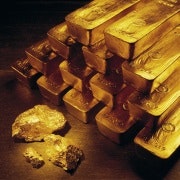Aldi and Lidl take a chunk out of Tesco's pie
Not long ago, Tesco dominated the supermarket sector in Britain. It had pioneered the strategy of “pile e’m high, sell e’m cheap”. It was Britain’s largest private sector employer, and became the world’s second largest retailer measured by profits and revenue. It seemed inevitable that before long we would all be buying everything from Tesco.
But we were wrong, because revolutions in business are hard to spot. Tesco is currently in trouble. At its annual meeting on June 27, the chairman and the chief executive were made to listen to small shareholders accusing them of arrogance, and of losing the trust of shoppers. The latest calculations of market share in the grocery market show Tesco down by 1.9 per cent in the 12 weeks to June 22, to 28.9 per cent. They are still No. 1 in the sector, but the gap with Sainsbury’s and Asda is narrowing.
The principal reason why established grocery chains such as Tesco and Morrisons are finding the retail trade difficult these days is the presence of two German-owned newcomers, Aldi and Lidl. Aldi grew by no less than 35 per cent in a year and has captured a 4.6 share of the grocery market. Lidl has a 3.4 per cent share, up from 2.9 per cent in a year.
There is nothing revolutionary about their model. They also “pile 'em high, sell 'em cheap”. When I visited a Lidl store locally, eight tills were open, but the queue stretched a long way down the aisle leading to them. The aisle was flanked by attractive last-minute purchases in frozen-food compartments on one side, and decent French and Italian wine that was significantly cheaper than in other supermarkets. Reflecting its German roots, Lidl is strong in cooked meats, sausages, and confectionery. The meat is boldly labelled “English” to distinguish it from imports from continental Europe that might, God forbid, contain horse meat. By the end of last year, 50.1 per cent of British households had visited an Aldi or a Lidl. With real incomes trending downwards, supermarkets are fighting a serious price war.
Until this year, Aldi and Lidl have concentrated their stores in the suburbs and provincial towns. Now they are poised go expand into larger urban areas, where their presence will show how much the supermarket trade has fractured. Waitrose, the supermarket subsidiary of John Lewis, has established itself at the top end of the market, branding itself by quality more than price, and ingratiating itself with a wider audience by sponsoring England’s cricket team (not much reflected glory in that at the moment). On the streets, vans delivering groceries ordered on the web from established supermarkets are jostling with vehicles from Ocado, which has no bricks and mortar retail premises at all. After an uncertain start, Ocado announced a small profit this week, its first.
Tesco’s profit last year was £2.25 billion ($A4.08bn), but the result that concerns analysts is that this is £1.25bn down on 2011-12. The share price, which once rose like the sun, has fallen by 14 per cent in this year’s rising stock market. Tesco has proved a poor manager of change.
The company had been led by a Lord (MacLaurin) and a Knight (Terry Leahy) whose triumphalism had won them places in the British business establishment. Under Sir Terry, Tesco spread itself ambitiously into challenging markets in the United States and China. But Tesco’s experience in Britain proved no guarantee of success abroad. The Japanese operation closed, and last year the curtain was brought down on Fresh and Easy on the west coast of the US. Sir Terry retired in 2010, and at the 2013 annual meeting, Lord MacLaurin joined his critics with the damaging assertion that he was “very sad” about Sir Terry’s legacy. For his part, Sir Terry says he is “very disappointed” with Tesco’s performance this year.
There are Tesco stores through Europe and South Asia too, but while Sir Terry set out to conquer the world, the 1500 Tesco stores in Britain tended to be taken for granted. The company became preoccupied with fringe activities such as financial services, petrol stations, electronics and clothing. But the stores themselves present an unappealing jumble.
When Sir Terry was chief executive, eight members of the board were active Tesco executives. Now only Philip Clarke, the chief executive and his finance director are on the board. Clarke fights off the critics virtually single-handed, leaving himself exposed. The chairman, Sir Richard Broadbent, formerly a deputy chairman of Barclays, promises that this skeleton of the old board will not flinch from important decisions, and insists that the refurbishment of hundreds of stores will lead the recovery. He will not cut prices dramatically to compete with the newcomers: “That is a strategy for decline”, he says. It is also a risky one.
On July 1, industry analysts announced that the price of groceries in Britain is rising at the slowest pace since 2006. The impact of Aldi and Lidl’s vigorous price war has contributed significantly. They are providing a text-book case in how competition ought to work to benefit consumers in a capitalist economy.
















